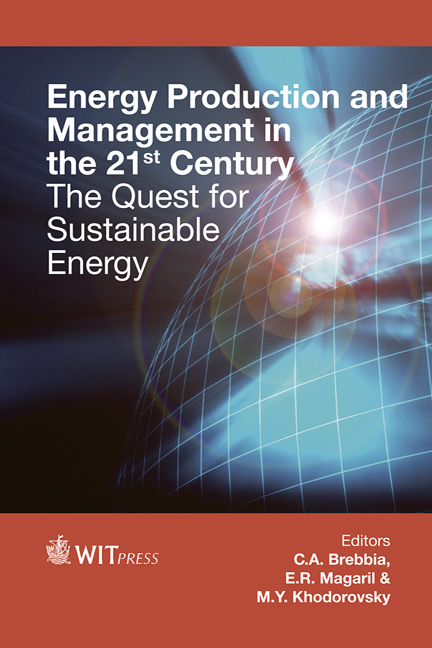Assessment Of Gas Cylinder Vehicles Adaptability For Operation At Low Ambient Temperature Conditions
Price
Free (open access)
Transaction
Volume
190
Pages
11
Page Range
685 - 695
Published
2014
Size
525 kb
Paper DOI
10.2495/EQ140651
Copyright
WIT Press
Author(s)
I. Anisimov, A. Ivanov, E. Chikishev, D. Chainikov & L. Reznik
Abstract
Assessment of gas cylinder vehicles adaptability for operation at low ambient temperatureTyumen State oil and Gas University, Russian conditions I. Anisimov, A. Ivanov, E. Chikishev, D. Chainikov & L. Reznik Federation Abstract Currently, there is a slowdown in oil production, which contributes to higher prices for liquid motor fuel. In this regard, the next 60–70 years alternative of natural gas on transport won’t be. In low ambient temperature conditions operation of cars on gas fuel becomes complicated, its consumption increases, and emissions of harmful substances change. In addition, a variety of vehicles in different ways adapted to the low ambient temperature. Currently, both in Russia and abroad there are no mentioned works, the main aim of which is to establish the relationships of low temperature influence on fuel consumption and harmful substance emissions of vehicles. Also there are no works estimating adaptability level of gas cylinder vehicles during the work on compressed natural and liquefied oil gas for these operating conditions. Assessment of gas cylinder vehicles adaptability levels to low ambient temperature operation conditions by fuel consumption and harmful substance emissions is the purpose of this paper. A space-time approach to assessing vehicles adaptability levels for low ambient temperature was used. The work included the carrying out of theoretical operational, bench and control tests. Distribution of vehicles on adaptability levels for low ambient temperature operation conditions became the main results of research. On the basis of these results we can draw conclusions about what brands, models of vehicles, with which gas fuel supply system, during the work on what gas fuel (the compressed natural and liquefied petroleum gas) are more adapted for use in low ambient temperature from the point of view of changes of fuel consumption and of harmful substances emission in the exhaust gases. Keywords: low ambient temperature conditions, adaptability, fuel consumption, harmful substances emissions.
Keywords
low ambient temperature conditions, adaptability, fuel consumption, harmful substances emissions.





